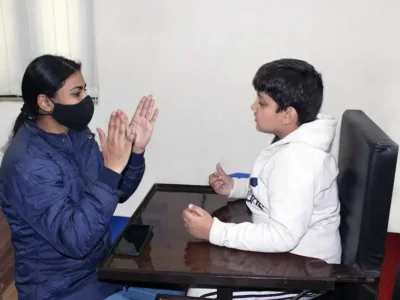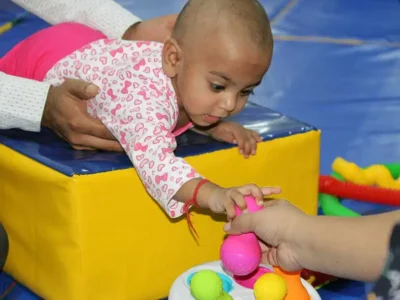Early Intervention Program
Early Intervention Programs are for infants and toddlers at risk for developmental delays. The primary reason for intervening early is to enhance the child’s normal development by providing the support and assistance they need. If you have any concerns about your child development, the early you seek help the better.
At PediGym, different types of therapists work with kids and their families and identify which skills are delayed. During this program, we focus on the following skills:
- Physical skills (crawling, walking, reaching, climbing, drawing)
- Cognitive skills (thinking, learning, problem-solving techniques)
- Communication skills (listening, speaking, understanding)
- Adaptive skills or Self-help (eating, bathing, dressing)
- Social or emotional skills (playing, interacting with others)
Children grow at their rate and that is why Early Intervention is different for each child depending upon the needs.
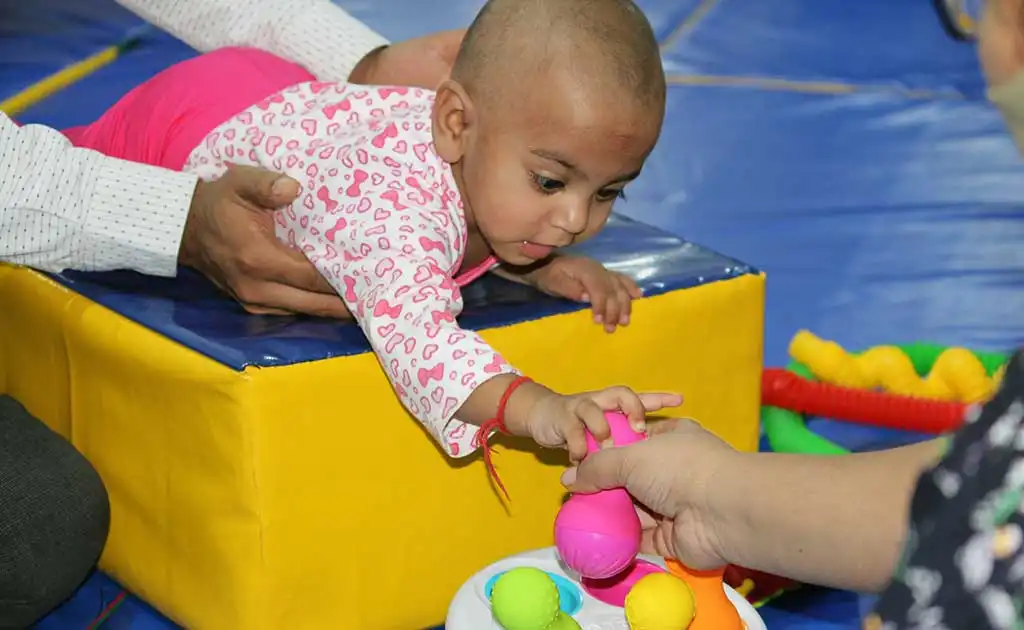
Early Intervention Age Range
Early intervention is for children aged birth to 3 years.
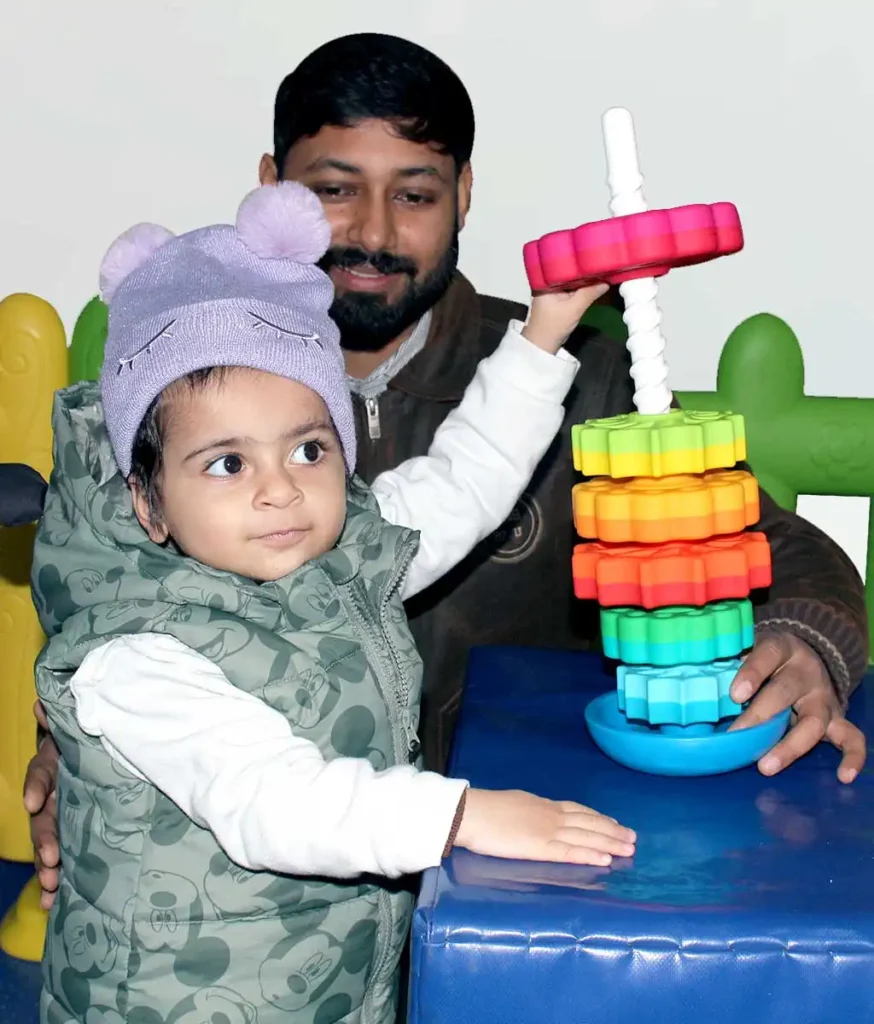
What conditions can be treated with the Early Intervention Program?
The Early Intervention Program is the best way to support the development of a child. It helps children develop the skills they need to take part in everyday activities. Here are some of the conditions that can be treated with this program:
- Genetic or Congenital Disorders
- Chromosomal Abnormalities
- Sensory Impairments
- Inborn Errors of Metabolism
- Congenital Infection
- Severe Attachment Disorders
- Neurological Disorders
- Disorders secondary to exposure to toxic substances, including Fetal Alcohol Spectrum Disorders (FASD), Fetal Alcohol Syndrome (FAS), Partial FAS (pFAS), Alcohol-Related Neurodevelopmental Disorder (ARND) and Alcohol-Related Birth Defects (ARBD) etc.
What is the role of therapists in the Early Intervention Program?
In the Early Intervention Program, Physiotherapists, Occupational therapists, Speech Therapists and Psychological Therapists work closely together with the kids and their family members to help them develop various skills.
An Occupational therapist helps children with fine motor skills, play and self-help skills like dressing and toileting.
A Physiotherapist helps children with balance, coordination and gross motor skills like walking, crawling and sitting.
A Speech therapist helps children with language, speech, eating, drinking, chewing and swallowing.
A Psychological therapist helps with building relationships, behaviour, coping with emotions and social skills.
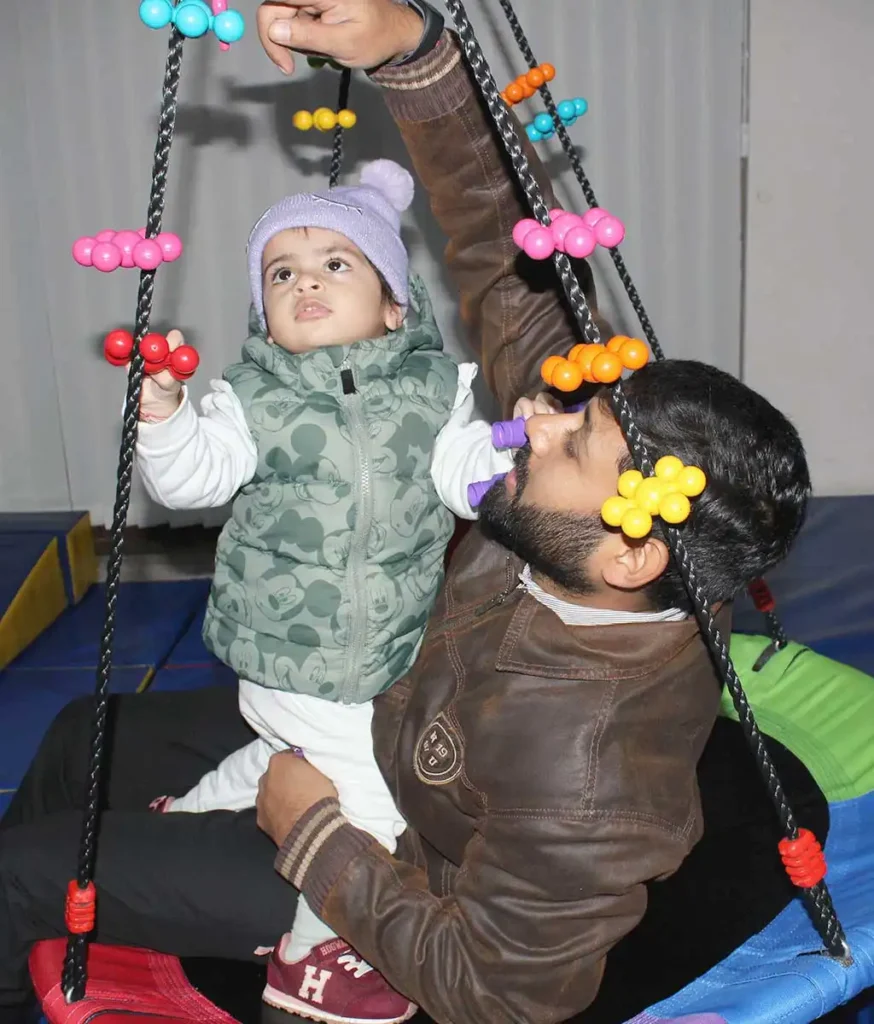
Kids won’t feel a thing when using the Kinesio tape
It might feel a bit itchy and uncomfortable when applying the tape; we suggest you keep it for three days for most total effects. Once the tape is removed, it does not stick to the skin. Removing the rape is easy when it’s wet; however, we tend to apply olive oil on the tap and let it soak in.
Does your child need help?
Feel free to speak to our physical therapist.
Therapies Offered
Our full-service firm has over 50 years of experience in a variety of practice areas and legal services. We pay special attention to your needs, pride ourselves on delivering consistent, outstanding results, and adhere to strict ethical and legal guidelines. Browse our practice areas to learn more about how we can help you.

